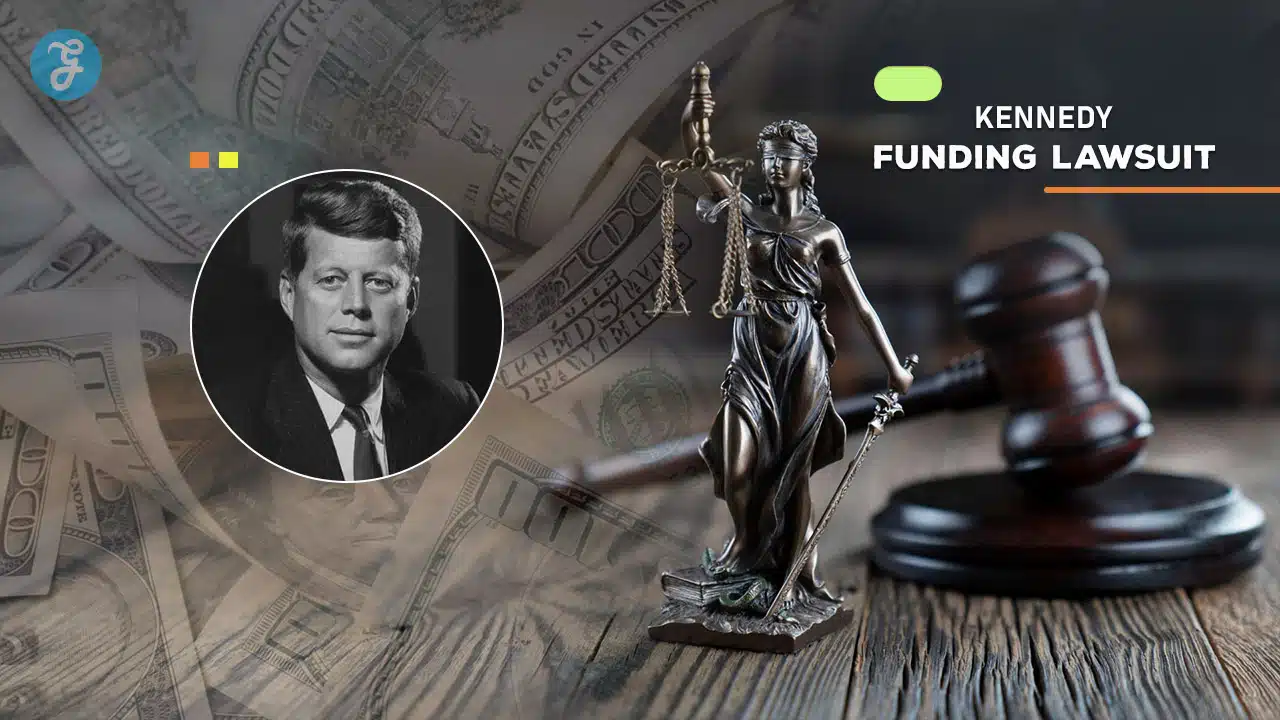Have you ever heard of a big legal fight over money? Legal issues can be hard and confusing, especially when it involves loans, contracts, and promises. This is true for the Kennedy Funding lawsuit.
It’s about a company named Kennedy Funding, Inc., which deals with bridge loans and creative financing. They got into a legal battle that caught many people’s attention.
One interesting fact: This lawsuit happened in New Jersey on September 26, 2006. The case shows how complicated agreements about money can get very tricky. Our article will walk you through this lawsuit in easy steps.
We’ll explain the tough parts in simple language so you can understand what went wrong and why it matters to businesses dealing with similar issues.
Ready to learn more? Keep reading!
Overview of Kennedy Funding Legal Cases
Kennedy Funding faced legal action in two major cases. In one, they fought with Lion’s Gate Development over a deal gone wrong; in another, CONSTRUCCIONES HAUS SOCEIDAD took them to court.
Kennedy Funding, Inc. v. Lion’s Gate Development, LLC
In this legal battle, Kennedy Funding, Inc. sued Lion’s Gate Development, LLC, over a deal gone wrong. They said Lion’s Gate did not follow their agreement on a loan for $18.2 million.
This loan was for buying and improving land. Kennedy Funding claimed Lion’s Gate broke the contract and lied to them. They also said that Lion’s Gate was not fair in how they acted.
The court had to make some decisions. On April 17, 2006, it threw out part of both sides’ claims against each other and all claims against Kevin Wolfer and others involved with Kennedy Funding.
Then on June 12, 2006, it threw out more of Lion’s Gate’s claims against Kennedy Funding’s lawyers. This case shows how tough things can get when big money deals don’t go as planned between businesses.
CONSTRUCCIONES HAUS SOCEIDAD v. Kennedy Funding Inc.
The case between Construcciones Haus Soceidad and Kennedy Funding Inc. happened on April 24, 2008. It was in the U.S. District Court, D. New Jersey. They fought over a commitment fee for lending money to build single-family homes in Xochitepec, Mexico.
The total fee was $230,000. Of this, $120,000 was due when they agreed to the deal and $110,000 at the loan’s closing.
The court made a big choice. It threw out claims by NAFTA and Acosta against Kennedy Funding Inc. It also dismissed Counts One to Nine by Construcciones Haus Soceidad. There were many issues here: common law fraud, breaking a contract promise (breach of contract), not being fair (unjust enrichment), and more.
Key Legal Issues Explored
In the Kennedy Funding lawsuit, courts looked at many legal problems. They checked if there were any lies told, unfair deals made, or promises that were not real.
Common Law Fraud
Common law fraud involves telling lies to trick someone into a deal. Kennedy Funding Inc. (KFI) said they faced fraud. Lion’s Gate also claimed they were victims of common law fraud by KFI.
This kind of fraud needs a few things to be true. Someone must tell a lie about something important, know it is false, and intend others to trust it. Then, the other person believes this lie and loses something because of it.
Both sides in these lawsuits used claims of deceit involving commercial property deals—like land buys or loan agreements—to argue their points. They talked about misrepresentation, or giving false information on purpose, related to things like property value and refinancing deals.
These are big words for lying about how much something costs or tricking someone in a money deal, which leads to serious legal battles between businesses.
New Jersey Consumer Fraud Act
The New Jersey Consumer Fraud Act is a big deal. It helps people when they buy things and someone tries to trick them. Let’s say a company promises something but does not do it. This act can protect the buyer.
Lion’s Gate said Kennedy Funding did just that—promised things but then did not follow through.
This law is powerful because it lets people ask for three times their money back if they win in court. So, if someone lost $1,000 because of a trick, they could get $3,000 back plus money for any lawyer fees.
It makes companies think twice before breaking a promise or being unfair to customers.
New Jersey Civil Rico Act
Kennedy Funding faced a big legal fight over the New Jersey Civil RICO Act. They tried to get rid of claims under this act with a Rule 12(b)(6) motion. This law is about stopping bad business actions that hurt others.
Kennedy Funding said some deals were not fair. These included common law fraud and breaking promises in contracts.
Judges looked at these problems closely. Some charges against people like NAFTA and Acosta got thrown out. This changed how lawyers fought in court using the RICO Act rules. The case showed how complex lending money can be, especially with laws like the New Jersey Civil RICO Act.
It also taught people what might happen in future legal battles over similar issues.
Breach of Contract
A breach of contract happens when someone does not follow the terms of an agreement. In this case, KFI said Lion’s Gate did not do what they agreed to. They did not close the deal as promised.
On the other hand, Lion’s Gate also accused KFI of breaking their contract. They said KFI did not pay fees under the loan agreement. Both sides claimed that the other did not keep their promises.
This fight involves serious rules about contracts and money. The court looks at these claims carefully to decide who is right and who is wrong. It checks all details, like deeds, loans, and promises made in good faith.
This helps them understand if someone really broke their promise or if things went wrong for other reasons.
Unjust Enrichment
Unjust enrichment happened in a legal battle between Kennedy Funding, Inc. and Lion’s Gate Development, LLC. The court found that Kennedy Funding might have gained unfairly from the deal.
This was because they kept a $230,000 commitment fee without following through on their promise to lend money for land. The lawsuit said this was wrong because it broke rules about fair deals.
The judges decided not to throw out these claims of unjust gain. They saw enough signs of possible fraud linked to how the money matters were handled. Even though claims that other parties lost out due to unfair benefit were tossed out, the focus stayed on the exchanged money.
This part of the case shows how tricky financial agreements can get when one side ends up with more than they should have without giving back as agreed.
Illusory Contract
An illusory contract happens when one side can choose if they want to follow the deal. In the case of Kennedy Funding, Inc. (KFI) versus Lion’s Gate, Lion’s Gate said that KFI had too much power in their Loan Commitment.
They meant that KFI could decide on its own if it wanted to give money or not. This made the promise seem fake because KFI was not locked into doing anything.
Lion’s Gate believed this setup was unfair because a real agreement means both sides must do something. Since KFI might walk away without giving a loan, Lion’s Gate felt tricked.
The law looks closely at these deals to protect businesses from agreements that are too one-sided or not clear enough about what each side has to do.
Kennedy Funding Lawsuit: Procedural History
The procedural history of a case tracks each step from start to end. It includes filing the lawsuit, motions by both sides, and decisions by the judge.
Steps in the Legal Process
Court cases follow many steps before they end. Let’s look at what happened in Kennedy Funding’s legal battles.
- Filing a Complaint: Kennedy Funding filed a legal claim against Lion’s Gate Development. This is the first step, where they told the court what went wrong and what they wanted.
- Dismissing Claims: The court decided to dismiss some parts of the case on April 17, 2006. They said no to Count 2 of Kennedy Funding’s complaint and some claims from Lion’s Gate.
- More Dismissals: On June 12, 2006, more of Lion’s Gate’s complaints got dismissed. This time it was Count 6 against Kennedy Funding’s lawyers.
- Seeking Summary Judgment: Kennedy Funding asked the court for a quick win on May 26, 2006. They didn’t want a full trial for some claims.
- Court Decisions: The court said no to Kennedy’s quick win request on July 19, 2006. But, they agreed there shouldn’t be a jury deciding some parts of the case.
- Enforcing Clauses: The court enforced rules about limiting damages and not having a jury trial for certain issues.
Each step involved different rules and decisions, like which claims could go ahead or if parts of the case needed no jury.
Request to Amend Complaint
Plaintiffs in the lawsuit wanted to change their complaint after the court said no to some of their claims. The court had thrown out nine parts, including NJRICO and unjust enrichment claims.
But, it let the fraud and NJCFA claims stay because they were clear enough.
They asked to add more details to their complaint. This step is a part of civil procedure rules. It allows them to try again on some points they lost before. Using amended pleadings is a way to strengthen their case by fixing problems pointed out by the judge.
Discussion and Analysis
At the core of these legal conflicts, we analyze various layers to reveal strategies and outcomes. This section highlights strategic actions from both parties and the potential influence these choices could have on future comparable disputes.
Legal Strategies Used
Lawyers in these cases looked closely at option contracts. They found enough give-and-take for KFI’s promises and Lion’s Gate’s return promises. This was key to moving forward. They also dug into claims of unfairness carefully, as each claim needs its own deep look.
Another strategy was dealing with waiver claims. These are about giving up rights on purpose. Here, lawyers argued that facts were not clear enough to decide without more digging—especially true for claims about things being impossible due to missing essential facts.
Lawyers used motions to dismiss, aiming to end parts of the case early if they thought those parts didn’t stand a chance based on the law or facts presented.
Implications for Future Cases
These legal cases set a clear path for future disputes. They show how courts look at facts and laws in lawsuits over loans, frauds, and contracts. This means people and companies will know better how to plan their agreements.
They can avoid mistakes that might lead to court. For judges, these cases offer examples on how to apply rules about summary judgments and view evidence in a fair light.
They also make it easier for everyone to understand what makes up fraud or a bad contract. This helps keep things honest between businesses. Plus, when someone breaks an agreement, the harmed party has a clearer idea of what they need to prove in court.
It’s all about making sure fair play wins in the end.
Takeaways
This legal battle shows how tough court fights can get. Kennedy Funding faced big claims and had to fight hard. They dealt with lots of legal terms like fraud and breach of contract.
The courts looked at every detail, from loan agreements to who said what when. Both sides used clever moves, but in the end, some things were too unclear for a quick decision. This case teaches us about the careful steps needed in big deals and the power of good contracts.
It’s a reminder to always be ready and to know your stuff before signing anything big.






































